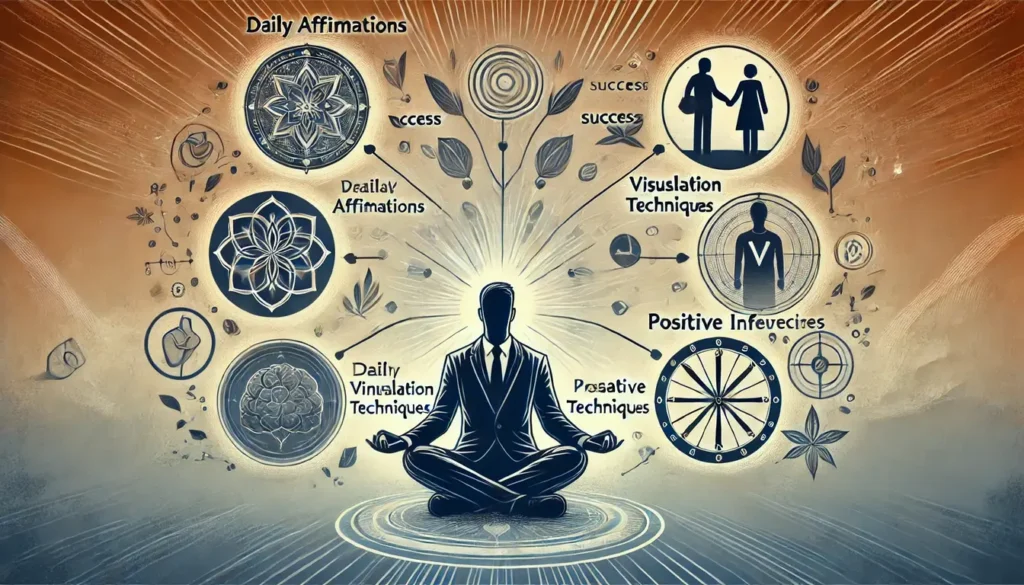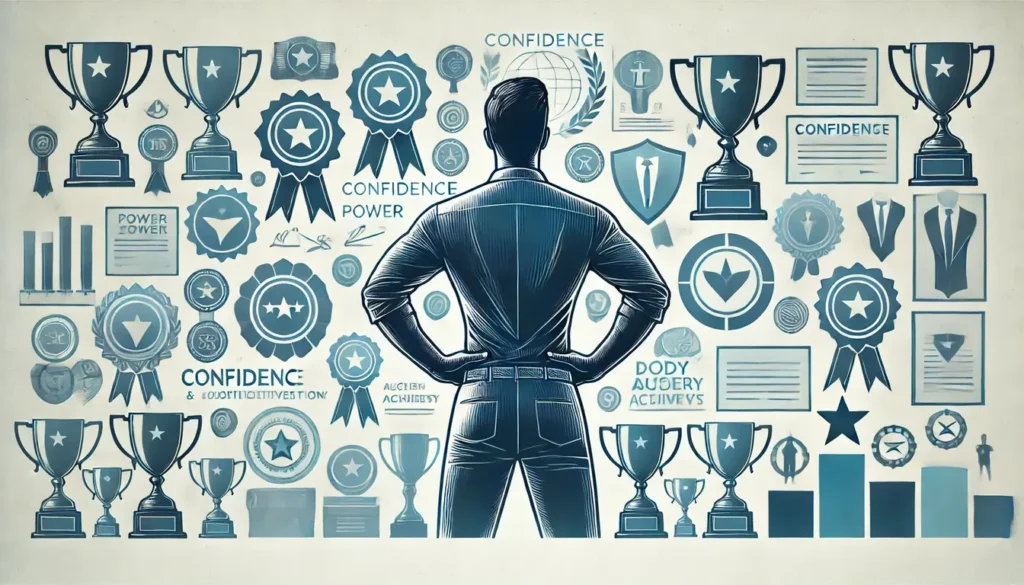In the vast landscape of personal development and success literature, certain words stand out as sources of motivation and empowerment. Among these, “Winner: How This Power Word Can Make You Better” shines particularly bright. This power word carries a weight of positivity, achievement, and potential that can dramatically reshape our perception of ourselves and our capabilities.
As a power word, “winner” holds significant influence over our mindset and actions, propelling us towards greatness. The concept of being a winner goes far beyond winning in a literal sense; it encompasses a holistic approach to life where we strive for excellence in all areas. But how exactly can identifying as a winner transform our lives? Let’s explore the profound impact this simple yet potent word can have on various aspects of our existence.
Understanding the Winner Mindset
Before we delve into the transformative power of the word “winner,” it’s crucial to understand what it truly means to embody this concept. A winner isn’t merely someone who comes first in a competition or achieves a particular goal. Rather, it’s an individual who approaches life with a certain mindset—one of determination, resilience, and unwavering belief in their ability to overcome challenges and achieve their aspirations.
“Winning isn’t everything, but wanting to win it,”
said legendary football coach Vince Lombardi. This quote encapsulates the essence of the winner mindset. It’s not about the result as much as it is about the attitude and approach to life’s challenges.
The psychology behind winning attitudes is rooted in positive psychology and the growth mindset concept popularized by psychologist Carol Dweck. Individuals with a growth mindset believe that their abilities can be developed through dedication and hard work. This perspective naturally aligns with the winner mentality, as it fosters resilience and a love for learning and improvement.

Common traits of winners include:
Persistence
Persistence is another common trait found in winners. They are individuals who stay committed to their goals even when obstacles arise. Persistence enables winners to bounce back from setbacks or failures, as they see these experiences as opportunities to learn from mistakes instead of reasons to give up.
To build persistence skills, consider creating achievable goals with strict deadlines or breaking down bigger tasks into smaller ones that can be accomplished one step at a time. This approach will make it easier to track progress while still maintaining momentum toward long-term objectives.
Strong work ethic
Winners have an exceptional work ethic, which involves having a dedication to putting in the necessary effort to achieve their goals. They understand that success requires hard work, discipline, and sacrifice. Winners don’t just wait for opportunities; they actively seek them out and are willing to put in the extra effort required to achieve them.
To develop a strong work ethic, it’s essential to set clear goals and priorities while creating schedules with specific deadlines to ensure progress is made toward achieving your objectives. It’s also important to avoid distractions that can interfere with your focus and productivity.
Goal-oriented
Winners are goal-oriented individuals who have a clear idea of what they want to achieve and how they will get there. They know exactly what they want and create a plan of action necessary for achieving their objectives.
This mindset allows them to stay focused on their goals even when faced with distractions or setbacks. To become more goal-oriented, start by breaking down your long-term objectives into smaller, more achievable ones with specific deadlines attached so you can track progress toward meeting overall milestones.
Ability to learn from failures
Winners understand that failure is not the end but rather an opportunity for growth. They view setbacks as learning experiences that allow them to gain new insights into how things work or what needs improvement next time. To build this trait, reflect on past failures while looking for lessons learned from those experiences; this way, you can use those lessons in future endeavors toward achieving success.
High levels of self-motivation
Winners are characterized by their exceptional ability to motivate themselves. This intrinsic motivation stems from a deep-seated desire to achieve their goals and continuously improve. Unlike those who rely on external factors for motivation, winners find their drive from within, pushing themselves even when faced with challenges or a lack of immediate rewards.
They set personal standards that often exceed external expectations and consistently work towards meeting and surpassing these benchmarks. A clear understanding of their goals and a firm belief in their capacity to accomplish them serve as the fuel for this self-motivation. It’s this internal drive that enables winners to persist when others might give up, to put in extra hours when necessary, and to constantly seek ways to enhance their skills and knowledge, demonstrating their dedication and competence.
Positive outlook and optimism
A hallmark of the winner’s mindset is a persistently positive outlook and unwavering optimism. This doesn’t mean winners are unrealistic or ignore problems; rather, they approach challenges with the belief that solutions can be found and obstacles can be overcome.
This “optimistic thinking” allows them to see opportunities where others might only see setbacks. Winners tend to practice “positive reframing, a technique where they interpret negative events in a more positive light, focusing on lessons learned and growth potential.
This optimism acts as a buffer against stress and disappointment, enabling winners to bounce back quickly from failures and maintain their motivation in the face of adversity. Moreover, a positive outlook often becomes a self-fulfilling prophecy, as optimistic individuals tend to take more productive actions and inspire positivity in those around them, creating a virtuous cycle of success and positive reinforcement.
The Impact of Self-Identification as a Winner
When we begin to identify ourselves as winners, we set in motion a powerful psychological mechanism known as a “self-fulfilling prophecy. This concept, first introduced by sociologist Robert K. Merton, suggests that our beliefs about ourselves and our capabilities can influence our behaviors and outcomes, effectively turning our predictions into reality.
Recent advances in neuroscience have shed light on the biological basis for this phenomenon. The concept of neuroplasticity—the brain’s ability to reorganize itself by forming new neural connections—suggests that positive thinking and self-identification as a winner can rewire our brains for success.
A study published in the journal “Nature Neuroscience” found that positive expectations can influence brain chemistry and improve outcomes in various tasks. This underscores the power of identifying as a winner in shaping our reality.
The ripple effect of this mindset shift can be seen across various life areas, from personal relationships to professional achievements and overall life satisfaction.

Applying the Winner Mindset in Personal Life
In our personal lives, adopting a winner mindset can have transformative effects on goal setting and achievement. Winners tend to set SMART goals (Specific, Measurable, Achievable, Relevant, and Time-bound) and approach them with determination and strategic thinking.
When faced with obstacles and setbacks, those who identify as winners view these challenges as opportunities for growth rather than insurmountable barriers. This resilience is a key factor in long-term success and personal fulfillment.
“I’ve missed more than 9,000 shots in my career. I’ve lost almost 300 games. Twenty-six times I’ve been trusted to take the game-winning shot and missed. I’ve failed over and over and over again in my life. And that is why I succeed,” said basketball legend Michael Jordan, exemplifying the winner’s approach to setbacks and failure.
Personal growth and self-improvement become natural pursuits for those who embrace the winner mindset. They consistently seek out opportunities to learn, develop new skills, and push their boundaries.
The Winner’s Approach to Professional Success
In the professional realm, the winner mindset can be a powerful catalyst for career advancement. Winners tend to approach their careers with strategic thinking, setting ambitious yet achievable goals and consistently working towards them.
The winner’s mentality frequently improves leadership and teamwork skills. Winners understand the importance of collaboration and are often able to inspire and motivate those around them. They lead by example, demonstrating the work ethic and positive attitude that characterize success.
In the realm of entrepreneurship and innovation, the winner mindset is particularly valuable. Entrepreneurs face numerous challenges and setbacks, and the resilience and determination inherent in the winner mentality can be the difference between giving up and pushing through to success.

Relationships and Social Interactions
The winner mindset can significantly impact our social lives and relationships. By fostering self-confidence and charisma, this mentality can enhance our ability to connect with others and build meaningful relationships.
Networking becomes more natural and effective when approached with a winner’s mindset. Winners tend to exude positivity and confidence, making them magnets for opportunities and connections.
In handling conflicts and negotiations, the winner mentality provides a balanced approach. Winners seek win-win solutions, understanding that true success often involves mutual benefit rather than dominance.
The Potential Pitfalls of the Winner Mindset
While the winner mindset offers numerous benefits, it’s important to be aware of potential pitfalls. Balancing confidence with humility is crucial to avoid coming across as arrogant or dismissive of others’ contributions.
There’s also a risk of falling into toxic competitiveness, where the desire to win overshadows ethical considerations or the well-being of others. True winners understand that success is not a zero-sum game and that lifting others can lead to collective success.
Dealing with failure is another crucial aspect of the winner mindset. While winners maintain their resilience in the face of setbacks, it’s important to allow oneself to process disappointments and learn from them.

Cultivating a Winner Mindset
Developing a winner mindset is a process that requires consistent effort and practice. Here are some strategies to help cultivate this powerful mentality:
1. Daily affirmations and visualization techniques: Start each day by affirming your identity as a winner and visualizing your success.
2. Surrounding yourself with positive influences: As motivational speaker Jim Rohn famously said, “You are the average of the five people you spend the most time with.” _ Choose your company wisely.
3. Continuous learning and skill development: Winners never stop growing. Commit to lifelong learning and constant self-improvement.
4. Practice gratitude: Acknowledging your blessings can boost positivity and reinforce a winner’s outlook.
5. Set and celebrate small wins: Build momentum by setting achievable goals and celebrating your progress.
The Broader Impact of a Society of Winners
Imagine a society where the majority of individuals embrace the winner mindset. The collective achievement and progress could be staggering. When people believe in their ability to succeed and persist in the face of challenges, innovation flourishes, and societal problems find creative solutions.
Moreover, a society of winners would naturally inspire future generations. Children growing up in an environment where perseverance, positive thinking, and continuous improvement are the norm would be better equipped to face the challenges of an ever-changing world.
Creating a culture of excellence becomes possible when the winner mindset is widely adopted. This doesn’t mean a cutthroat, competitive environment, but rather one where individuals strive to be their best selves and contribute positively to their communities.

How Body Language Can Affect Your Chances of Winning
Most people don’t realize how much their body language can affect their chances of winning. When you exude confidence and assertiveness through your body language, you signal to others that you are in control and capable of handling whatever comes your way. On the other hand, if you slouch or avoid eye contact, you can come across as unsure of yourself and lacking in confidence.
Research shows that adopting power poses for just two minutes can increase testosterone levels while decreasing cortisol (the stress hormone) levels in your brain, leading to a more confident state of mind. To improve your body language, stand up straight with your shoulders back and make eye contact when speaking with others.
Practice open gestures, like keeping your arms uncrossed and using expansive movements while speaking. By consciously improving your body language, you can significantly increase your chances of winning in any situation.
Conclusion
The power word “winner” carries with it the potential for profound personal transformation. By embracing this mindset, we open ourselves up to a world of possibilities, enhanced resilience, and greater achievement across all areas of life.
From boosting our confidence and improving our relationships to advancing our careers and contributing to societal progress, the winner mentality offers a multitude of benefits. However, it’s crucial to approach this mindset with balance, maintaining humility and empathy while striving for personal excellence.
As you move forward from reading this article, consider how you can incorporate the winner mindset into your daily life. Start with small steps—daily affirmations, setting achievable goals, and celebrating your progress. Remember, becoming a winner is not about reaching a final destination, but about embracing a journey of continuous growth and improvement.
In the words of tennis champion Arthur Ashe,
“Success is a journey, not a destination. The doing is often more important than the outcome.”
By adopting the winner mindset, you’re not just working towards becoming a winner—you’re acknowledging that you already are one, ready to tackle whatever challenges life presents with confidence, resilience, and unwavering determination.
So, are you ready to embrace your inner winner and unlock your full potential? The journey starts now, and the possibilities are limitless. Remember, you are a winner—now go out there and prove it to yourself and the world.






